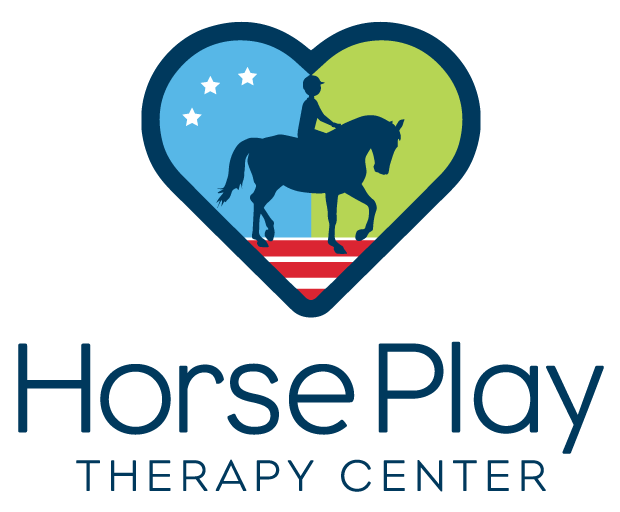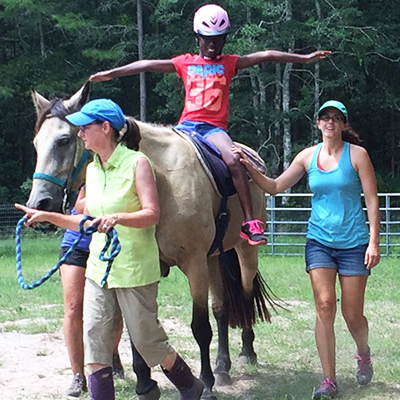What is the difference? And how do I know which one is most appropriate for my child?
Consider your child’s specific needs:
- Does your child require constant positioning to maintain sitting balance?
- Does your child need frequent assistance to maintain attention or alertness levels?
- Is you child under the age of 5?
- Does your child have special medical needs that may require the additional knowledge and training from a licensed professional therapist?
- Does your child have sensory integration dysfunction or frequent behavioral outbursts to sensory stimulus?
- Does your child have specific fine or gross motor skills to work on?
- Would your child benefit most from the horse’s movement in private one-on-one sessions?
If you answered “yes” to any of the questions above, then hippotherapy may be the most appropriate choice for your child.
Hippotherapy
- Physical, occupational, or speech therapy, prescribed by a physician and delivered by a team that includes a licensed, specially-trained therapist.The horse’s movement is essential to assist in meeting therapy goals.
- Completed by a licensed therapist (occupational therapist, physical therapist, or speech language pathologist) in conjunction with a professional horse handler and a specially-screened and -trained therapy horse.
- A one-on-one treatment designed to achieve individual therapeutic goals. Treatment, depending upon the facilities, generally occurs year-round until the client meets discharge criteria.
- There is direct hands-on participation by the therapist at all times. The treating therapist continually assesses and modifies therapy based on the client’s responses.
- The goal is for professional treatment to improve neurological functioning in cognition, body movement, organization, and attention levels.
- Horses are specifically selected for their temperament, size, and the type of movement they provide for the client.
- Equine-assisted physical, occupational or speech therapy is reimbursable by most medical insurance (third party).
Therapeutic Riding
- Recreational horseback riding lessons adapted to individuals with disabilities.
- Completed by a professional horseback-riding instructor in conjunction with volunteers.
- The individual is often taught riding skills in a group format, which runs in “sessions.” The instructor must respond to the group as a whole, in addition to fostering individual success.
- There is occasional hands-on assistance by the riding instructor and/or volunteers, but the instructor usually teaches from the center of the arena.
- The emphasis is on proper riding position and rein skills, not functional therapeutic goals.
- Horses have been screened to make sure they have the appropriate temperament for the job.
- Because therapeutic riding is an adaptive/recreational/sport activity, not therapy, it is not covered by insurance.

